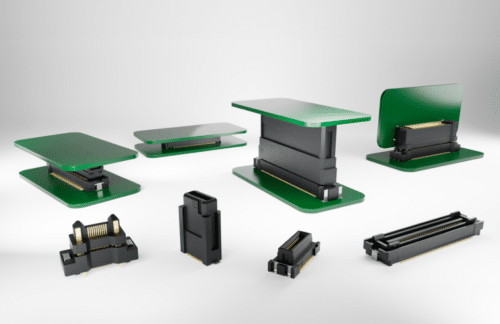The new range of connectors is designed for devices, offering durability and placement for data and power transfer.

Harwin has introduced a new range of board-to-board connectors called the Flecto family, designed for high-performance applications requiring data and power transfer. These connectors can handle small movements in multiple directions, making them suitable for high-speed automated assembly and increasing their resistance to shock and vibration.
The Flecto connectors offer up to 160 contacts in a symmetrical double-row layout and come in three miniature pitch sizes: 0.5mm, 0.635mm, and 0.8mm. They can accommodate up to ±0.5 mm movement in both the X and Y axes, allowing for precise placement of multiple connectors between two PCBs, even with slight misalignments.
Additionally, the flexibility in positional tolerance of the connectors helps maintain connection integrity during shock and vibration events, reducing the risk of degradation or failure due to fretting, which happens when long-term vibration wears away the plating on rigid mating pins, exposing the underlying alloy to oxidation.
The connectors accommodate board-to-board mating heights starting from 7.2mm and support data rates up to 12 Gbit/s. The 0.5mm pitch variants come with additional power pins capable of handling currents up to 3A. These connectors are designed for vertical and horizontal configurations, allowing for parallel or perpendicular connections. Flecto signal-only connectors are equipped with location pegs or posts to prevent movement during soldering. In contrast, mixed-signal and power connectors have solderable posts through the board for precise positioning and increased strength. Some connectors have shrouded contacts to protect against damage when not connected, and others are polarized to ensure correct mating orientation.
The range is suitable for various applications, including factory automation, electric vehicles, LED displays, security cameras, IoT devices, data communications, and embedded systems.
“Growing demand for multiple connectors per board pair increases the potential for mechanical alignment issues due to the capabilities of automatic pick-and-place systems and the associated reflow process, which can cause connectors to experience unintended strain,” says Ryan Smart, Harwin’s Vice President of Product.






